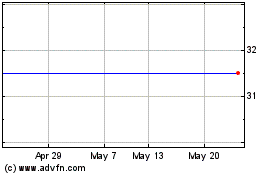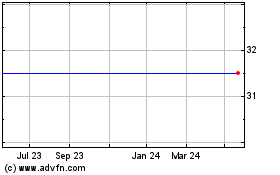uniQure Receives FDA Regenerative Medicine Advanced Therapy (RMAT)
Designation for Investigational Gene Therapy AMT-130 in
Huntington’s Disease
~ Designation based on 24-month interim Phase
I/II clinical data for AMT-130 announced in December 2023
~
~ AMT-130 is the first therapeutic candidate
to receive RMAT Designation for Huntington’s disease ~
~ Receiving RMAT designation enables
increased collaboration with the FDA on regulatory approval
planning, in addition to the opportunity for expedited product
development ~
LEXINGTON, Mass. and AMSTERDAM, June 03, 2024
(GLOBE NEWSWIRE) -- uniQure N.V. (NASDAQ: QURE), a leading gene
therapy company advancing transformative therapies for patients
with severe medical needs, today announced that the U.S. Food and
Drug Administration (FDA) has granted Regenerative Medicine
Advanced Therapy (RMAT) designation for its investigational gene
therapy AMT-130 for the treatment of Huntington’s disease.
The FDA granted RMAT designation based on the
potential of AMT-130 to address the major unmet medical need among
patients with Huntington’s disease. The designation follows the
FDA’s review of interim Phase I/II clinical data for AMT-130
announced in December 2023 and is based on an analysis comparing
these 24-month clinical data to a non-concurrent criteria-matched
natural history cohort.
“We’re thrilled to receive the first ever RMAT
designation for an investigational therapy for Huntington’s
disease,” stated Matt Kapusta, chief executive officer of uniQure.
“This achievement is a significant milestone for the program and
supports the potential for AMT-130 to address the high unmet
medical need of those suffering from this devastating disease.”
“The RMAT designation, which was based on the
comparison of the two-year AMT-130 data to a natural history
cohort, marks a promising start to our FDA interactions,” stated
Walid Abi-Saab, chief medical officer of uniQure. “Importantly,
RMAT designation allows for increased collaboration with the FDA to
accelerate development, potentially facilitating earlier access for
patients with life-threatening medical conditions. I’m incredibly
proud of the team at uniQure for this accomplishment, and we look
forward to presenting updated interim data from our ongoing Phase
I/II studies in the middle of the year.”
RMAT designation was created as part of the
21st Century Cures Act to expedite the development and
review processes of regenerative medicine therapies. A regenerative
medicine therapy can be eligible for RMAT designation if it is
intended to treat, modify, reverse or cure a serious condition, and
if preliminary clinical evidence indicates that the drug has the
potential to address unmet medical needs for such a condition.
Receiving RMAT designation offers sponsor companies all the
benefits of the fast track and breakthrough therapy designation
programs, allowing for early, close and frequent interactions with
the FDA. This includes opportunities for early agency interactions
to discuss the use of surrogate or intermediate endpoints,
potential approval pathways including ways to support accelerated
approval, and other opportunities to expedite development.
uniQure expects to provide updated interim data
from the ongoing Phase I/II U.S. and European studies of AMT-130 in
the middle of 2024. The interim update will include up to three
years of follow-up on 29 treated patients, 21 of which will have
been followed for at least two years.
About the Phase I/II Clinical Program of
AMT-130
The U.S. Phase I/II clinical trial of
AMT-130 for the treatment of Huntington’s disease is exploring the
safety, tolerability, and efficacy signals in 26 patients with
early manifest Huntington’s disease split into a 10-patient
low-dose cohort followed by a 16-patient high-dose cohort. Patients
are randomized to treatment with AMT-130 or an imitation (sham)
surgery. The multi-center trial consists of a blinded 12-month core
study period followed by unblinded long-term follow-up for a period
of up five years. A total of 16 patients in the clinical trial were
randomized to treatment and received a single administration of
AMT-130 through MRI-guided, convection-enhanced stereotactic
neurosurgical delivery directly into the striatum (caudate and
putamen). An additional four control patients in the high-dose
cohort crossed over to treatment following the core study period.
Additional details are available
on www.clinicaltrials.gov (NCT04120493).
The European, open-label Phase Ib/II study of
AMT-130 enrolled 13 patients with early manifest Huntington’s
disease across two dose cohorts; a low-dose cohort of six patients
and a high-dose cohort of seven patients. Together with
the U.S. study, the European study is intended to
establish safety, proof of concept, and the optimal dose of AMT-130
to take forward into Phase III development or into a confirmatory
study should an accelerated registration pathway be
feasible.
Patient dosing is ongoing in a third cohort of
up to 12 patients to further evaluate both doses of AMT-130 in
combination with perioperative immunosuppression. Enrollment in
this third cohort is expected to be completed in the second half of
2024. AMT-130 is uniQure’s first clinical program focusing on the
central nervous system incorporating its proprietary
miQURE® platform.
About Huntington’s Disease
Huntington’s disease is a rare, inherited
neurodegenerative disorder that leads to motor symptoms including
chorea, behavioral abnormalities and cognitive decline resulting in
progressive physical and mental deterioration. The disease is an
autosomal dominant condition with a disease-causing CAG repeat
expansion in the first exon of the huntingtin gene that leads to
the production and aggregation of abnormal protein in the brain.
Despite the clear etiology of Huntington’s disease, there are
currently no approved therapies to delay the onset or to slow the
disease’s progression.
About uniQure
uniQure’s mission is to reimagine the future of
medicine by delivering innovative cures that transform lives. The
recent approvals of our gene therapy for hemophilia B – a historic
achievement based on more than a decade of research and clinical
development – represent a major milestone in the field of genomic
medicine and ushers in a new treatment approach for patients living
with hemophilia. We are now leveraging our modular and validated
technology and manufacturing platform to advance a pipeline of
proprietary gene therapies for the treatment of patients with
Huntington's disease, refractory mesial temporal lobe epilepsy,
amyotrophic lateral sclerosis (ALS), Fabry disease, and other
severe diseases. www.uniQure.com
uniQure Forward-Looking
Statements
This press release contains forward-looking
statements. All statements other than statements of historical fact
are forward-looking statements, which are often indicated by terms
such as "anticipate," "believe," "could," “establish,” "estimate,"
"expect," "goal," "intend," "look forward to", "may," "plan,"
"potential," "predict," "project," “seek,” "should," "will,"
"would" and similar expressions. Forward-looking statements are
based on management's beliefs and assumptions and on information
available to management only as of the date of this press release.
Examples of these forward-looking statements include, but are not
limited to, statements concerning the potential of AMT-130 to
address the unmet medical needs of Huntington’s disease patients;
the potential that RMAT designation will expedite the ongoing
development of AMT-130 and facilitate earlier access to
Huntington’s disease patients; the Company’s plans to present
updated interim data from the ongoing Phase I/II U.S. and European
studies of AMT-130 in mid-2024; and the Company’s plans regarding
the third cohort in its AMT-130 clinical trial and the timing of
enrollment for such cohort. The Company’s actual results could
differ materially from those anticipated in these forward-looking
statements for many reasons. These risks and uncertainties include,
among others: risks associated with the Company’s clinical results
and the development and timing of its programs; the Company’s
interactions with regulatory authorities, which may affect the
initiation, timing and progress of clinical trials and pathways to
regulatory approval; whether RMAT designation or any accelerated
pathway will lead to regulatory approval; the Company’s ability to
conduct and fund a Phase III or confirmatory study for AMT-130; the
Company’s ability to continue to build and maintain the company
infrastructure and personnel needed to achieve its goals; the
Company’s effectiveness in managing current and future clinical
trials and regulatory processes; the continued development and
acceptance of gene therapies; the Company’s ability to demonstrate
the therapeutic benefits of its gene therapy candidates in clinical
trials; the Company’s ability to obtain, maintain and protect its
intellectual property; and the Company’s ability to fund its
operations and to raise additional capital as needed. These risks
and uncertainties are more fully described under the heading "Risk
Factors" in the Company’s periodic filings with the U.S. Securities
& Exchange Commission (“SEC”), including its Annual Report on
Form 10-K filed February 28, 2024 and in other filings that the
Company makes with the SEC from time to time. Given these risks,
uncertainties and other factors, you should not place undue
reliance on these forward-looking statements, and the Company
assumes no obligation to update these forward-looking statements,
even if new information becomes available in the future.
|
uniQure Contacts: |
|
|
| |
|
|
FOR
INVESTORS:
|
|
FOR
MEDIA: |
| |
|
|
| Maria E.
Cantor |
Chiara
Russo |
Tom
Malone |
| Direct: 339-970-7536 |
Direct: 617-306-9137 |
Direct: 339-970-7558 |
| Mobile: 617-680-9452 |
Mobile: 617-306-9137 |
Mobile:339-223-8541 |
| m.cantor@uniQure.com |
c.russo@uniQure.com |
t.malone@uniQure.com |


Uniqure Nv (LSE:0EE0)
Historical Stock Chart
From Jan 2025 to Feb 2025

Uniqure Nv (LSE:0EE0)
Historical Stock Chart
From Feb 2024 to Feb 2025
